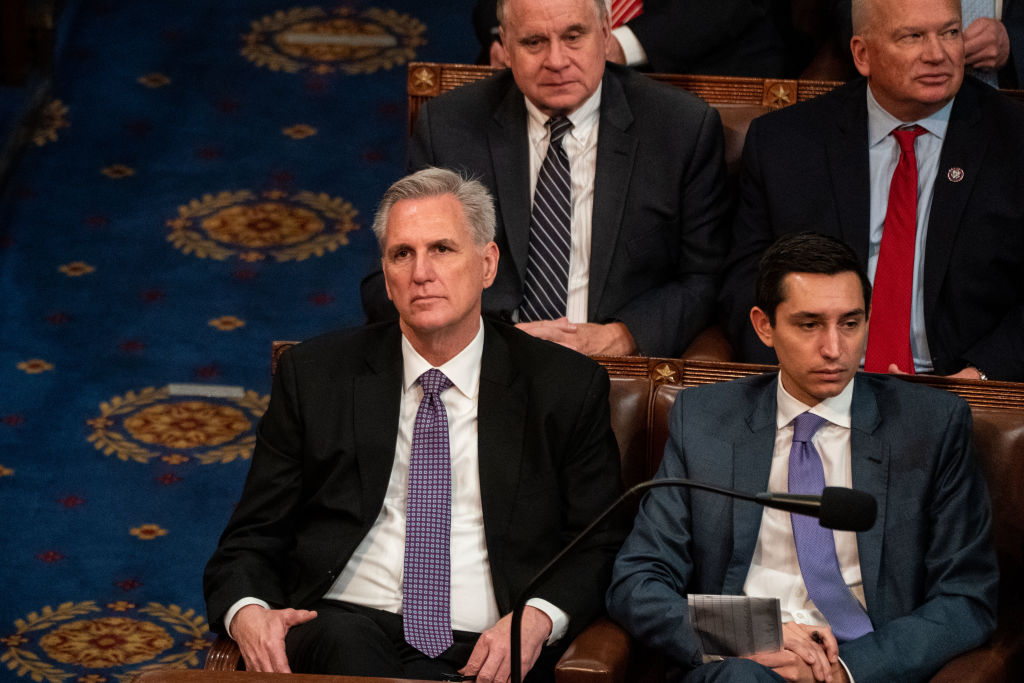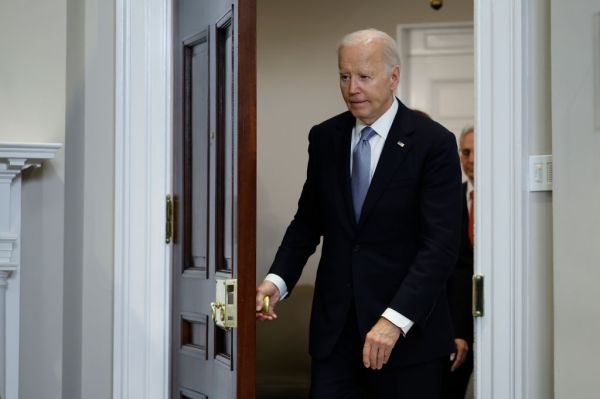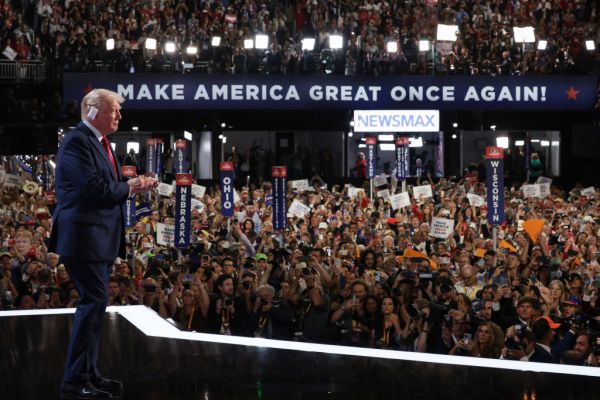Hey,
I don’t like chants. I don’t like them about your pants, I don’t like them while in France, even in Nantes. I don’t like them Gregorian or in a DeLorean or when full of midi-chlorians.
Sorry, I’m not very good at rhyming (“It’s probably because you have lousy timing”—The Couch). But I have Green Eggs and Ham on the brain since I remembered that Kevin McCarthy had read it to own the libs back in 2021.
Anyway, one chant I really can’t stand is, “This is what democracy looks like!” It’s a popular one among progressives. It’s less objectionable coming from protesters in authoritarian regimes because it has the benefit of being courageous in countries that outlaw actual protest and association. But that’s because we use the word “democratic” in those kinds of countries to mean “free” and to describe a liberal order.
And that’s partly why I don’t like “this is what democracy looks like!” from unruly mobs of protesters in the U.S. There are lots of people who like to pretend that we don’t live in a free country. Mass protests often—not always, but very often—borrow the aesthetics of freedom fighting in order to make the protesters feel brave and important and to raise the stakes of their cause.
For most of my life, the left has been the primary champion of this form of politics in America. That started to change with the Tea Party and, later, with Donald Trump’s obsession with crowd size.
But the main reason I don’t like the chant is that it’s not true. Democracy doesn’t look like a giant crowd shouting its demands through bullhorns. For starters, crowds or mobs aren’t always democratic. Mussolini, Castro, Hitler, Mao, and countless others used the images of masses to fight actual democracy. The Nuremberg rallies were hardly “democratic” in a formal sense. Think of it this way: If you mute your TV and see news coverage of a massive crowd shouting slogans, or of a political leader shouting slogans back at a cheering crowd, you’ll have no idea whether their cause is pro or anti-democracy.
That’s because that’s not what democracy looks like.
You know what democracy really looks like? People waiting in an orderly fashion to vote. You know what else democracy looks like? The hot mess on TV right now.
The Founding Fathers didn’t think democracy was about crowds. They were very clear about that. Popular passion wasn’t necessarily bad, but it wasn’t necessarily good either. Like fire, it needed to be handled responsibly and channeled toward productive ends.
One could argue that the central point of the Constitution was to manage precisely this sort of process. Regular elections at every level of government, according to Madison, were a necessary means of tapping into popular sentiment in a deliberate and responsible manner. Remember, before polling, the only real way of figuring out where the people were on an issue was to hold elections of one sort or another. Elections are still the best way of doing that because polling is cost-free for the polled, requiring little to no consideration of competing interests and necessary tradeoffs. Pollsters don’t make arguments, they merely ask for snap opinions in a moment. Elections require actual choices—between individual candidates, between parties, and between competing priorities. People in Washington love to cite polls that “prove” the American people want X or Y but that have zero predictive power about how the American people will vote.
So let’s talk about the spectacle in Congress. The more I think about it, the more I like it. All day I’ve heard people say it’s “embarrassing.” Yeah, sure, it’s embarrassing for Kevin McCarthy, but so what? His reading of Green Eggs and Ham was far more embarrassing. His toadying to Trump—after blaming him for a violent assault on the institution he wants to lead—was infinitely more embarrassing. It’s embarrassing for the GOP, sure. But such embarrassment is not simply warranted—it’s overdue. Some of the most important lessons in life are learned through embarrassment. (Heck, I might not be a columnist today were it not for the fact that my now-friend George Will embarrassed me.)
But Chip Roy was right when he said (I’m paraphrasing), “This is what Congress is supposed to look like.” Congress doesn’t debate anything anymore. But here everyone showed up to debate and vote on who should be speaker.
It’s standard practice to refer to the inauguration of a new president as the “peaceful transfer of power.” And that’s fine. The president is the commander in chief and the peaceful transfer of control over the military is a big deal for all sorts of obvious reasons. But the swearing-in of a new Congress is the peaceful transfer of power, too. Congress, at least as laid out in the Constitution, is way more powerful than the president. Only Congress can declare war (again, going by the instructions that came in the box). It funds the military and raises the taxes to do so. It can fire the president and judges, but the president and the courts can’t do that to members of Congress.
So here we have elected officials obeying the rules to empower a different person and a different party to take control of the House. Even the same suckers and charlatans who supported Trump’s attempt to break the rules and intimidate Congress with a mob are calmly following the rules. It’s taking longer than it usually does, but we’re probably only talking about a few days. But even if it’s a few weeks, what’s the big deal? Sure, at some point, the stakes could become more dire. It would be very bad if we failed to deal with the debt ceiling because Kevin McCarthy can’t let go of his dream or because Matt Gaetz is having too much fun being a troll. But for now, this is kind of great. Because this is actually what democracy looks like.









Please note that we at The Dispatch hold ourselves, our work, and our commenters to a higher standard than other places on the internet. We welcome comments that foster genuine debate or discussion—including comments critical of us or our work—but responses that include ad hominem attacks on fellow Dispatch members or are intended to stoke fear and anger may be moderated.